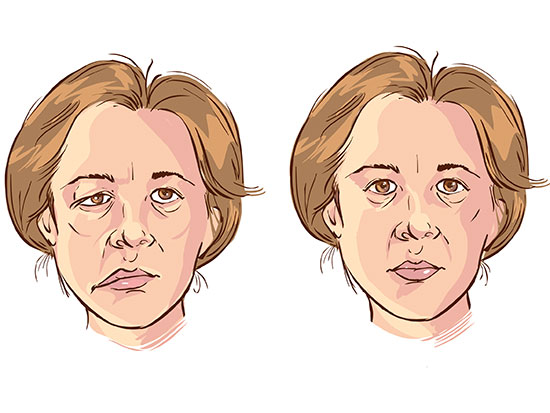 The program will treat patients with facial nerve paralysis or weakness caused by Bell’s palsy, Ramsay-Hunt Syndrome, facial nerve tumors, cancer treatment, ear disease, acoustic neuromas, facial trauma, temporal bone trauma, parotid surgery, neurofibromatosis, vascular malformations, congenital malformations or birth trauma. The University of Alabama at Birmingham Department of Otolaryngology and Department of Surgery has launched the first facial nerve clinic in the state of Alabama. The clinic comprises a team of physicians who have expertise in the treatment of facial nerve injuries and other facial nerve disorders.
The program will treat patients with facial nerve paralysis or weakness caused by Bell’s palsy, Ramsay-Hunt Syndrome, facial nerve tumors, cancer treatment, ear disease, acoustic neuromas, facial trauma, temporal bone trauma, parotid surgery, neurofibromatosis, vascular malformations, congenital malformations or birth trauma. The University of Alabama at Birmingham Department of Otolaryngology and Department of Surgery has launched the first facial nerve clinic in the state of Alabama. The clinic comprises a team of physicians who have expertise in the treatment of facial nerve injuries and other facial nerve disorders.
“Our clinic provides a comprehensive approach that integrates the most cutting-edge therapies for facial nerve disorders, spanning from rehabilitation to medical management to surgical repair,” said Benjamin Greene, M.D., assistant professor in UAB’s Department of Otolaryngology Head and Neck Microvascular Reconstructive Surgery. “Patients will receive an initial assessment, followed by same-day testing and/or intervention if necessary. Through our collaboration efforts, we implement personalized treatment plans that best fit the needs of our patients.”
The multidisciplinary team includes microvascular and craniofacial surgeons, physicians, radiologists, advanced practice providers, therapists, nurses, and other specialists who utilize the most advanced technology to diagnose and manage facial nerve disorders.
Supported by the resources within the UAB Department of Otolaryngology’s Head and Neck Surgery and the Department of Surgery’s Division of Plastic Surgery, the facial nerve clinic offers updated treatment recommendations based on groundbreaking research from the facial nerve community.
The clinic will treat patients with facial nerve paralysis or weakness caused by Bell’s palsy, Ramsay-Hunt Syndrome, facial nerve tumors, cancer treatment, ear disease, acoustic neuromas, facial trauma, temporal bone trauma, parotid surgery, neurofibromatosis, vascular malformations, congenital malformations or birth trauma. A personalized treatment plan will be developed to include the latest therapies and standards of care based on the patient’s specific type of disorder and outcome goals.
Nonsurgical options for treatment include chemodenervation and/or facial nerve rehabilitation complete with access to a licensed therapist on-site. A wide range of surgical treatment options is offered, including facial reanimation, nerve grafting and tendon transfers.
Each patient will have access to integrative medicine and supportive therapy. Comprehensive care will be provided in collaboration with the patient’s primary care provider and referring physician.